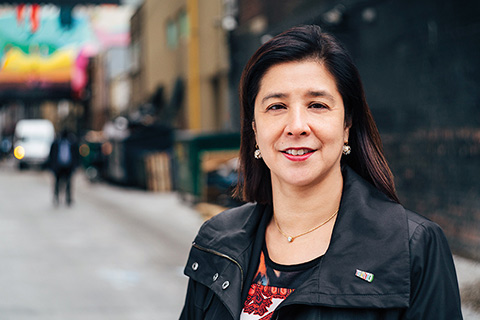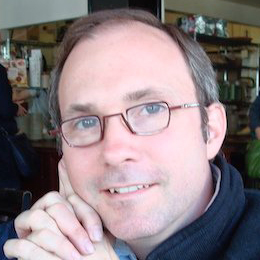On a Tuesday, late in the fall, Toronto’s newly appointed medical officer of health, Eileen de Villa, shared some good news and bad news about the city, speaking in her characteristically calm, precise manner.
De Villa (MHSc 1994, MD 1998) noted that a program that integrates new immigrants into the city’s social fabric had won an international award. “It provides training to Arabic-speaking immigrants in food handling,” says de Villa, who is also an adjunct professor at U of T’s Dalla Lana School of Public Health. “These skills could translate into job opportunities while helping these newcomers to the country find a set of friends.”
The bad news was that, according to a count conducted by her staff, 70 homeless people died in Toronto in the first three quarters of 2017, at a median age of 48. When she delivered this news at a Board of Health meeting, many members expressed deep concern at the numbers. De Villa explained the methods of garnering the statistics – and what they meant and didn’t mean in terms of public-health impact.
Gathering data like this is a core part of de Villa’s newly assumed responsibilities. Hers is a big job, running Canada’s largest municipal health organization, with its budget of about $245 million and staff of 1,800. She always needs to be shifting focus between diverse programs – from influenza vaccines to restaurant inspections to smoking regulations.
De Villa is the daughter of doctors who left the Philippines in 1975 after Ferdinand Marcos seized power – her mother is a cardiologist, her late father was an obstetrician and gynecologist – and medical issues were often discussed around the dinner table. But where her parents specialized in clinical areas of practice, she’s chosen to work on a broader canvas. “I loved the clinical part of my training, the work with individual patients,” she says, remembering how a senior doctor carefully taught her how to suture a blood-covered patient who’d fallen through a window when drunk. “But now my patients are the 2.8 million residents of the city.”
Perhaps the most charged file de Villa inherited when she moved from the Peel Region’s health department is Toronto’s opioid problem. She talks about a mix of programs that she feels can help: ones for supervised injection sites, the first of which recently opened; for getting naloxone kits into the right hands (naloxone can be used to counteract overdoses); and for addiction treatment. But she’s also interested in the social messaging around the problem: “People need to know that using drugs when they’re alone is a risk factor, and people tend to be reluctant to engage in illegal activity in front of others,” she says.
In her soft-spoken, science-driven way, de Villa – a married mother of three – speaks of a shift she feels this society needs to make in its thinking around addictive substances. But, as with the gathering of data around homeless deaths, she sees the amassing of information – and understanding it – as the necessary precursor to a rethink of attitudes and policies. “The social determinants have a direct impact on health, and you have to understand the extent of the problem, its roots, before you can begin to address it.”






